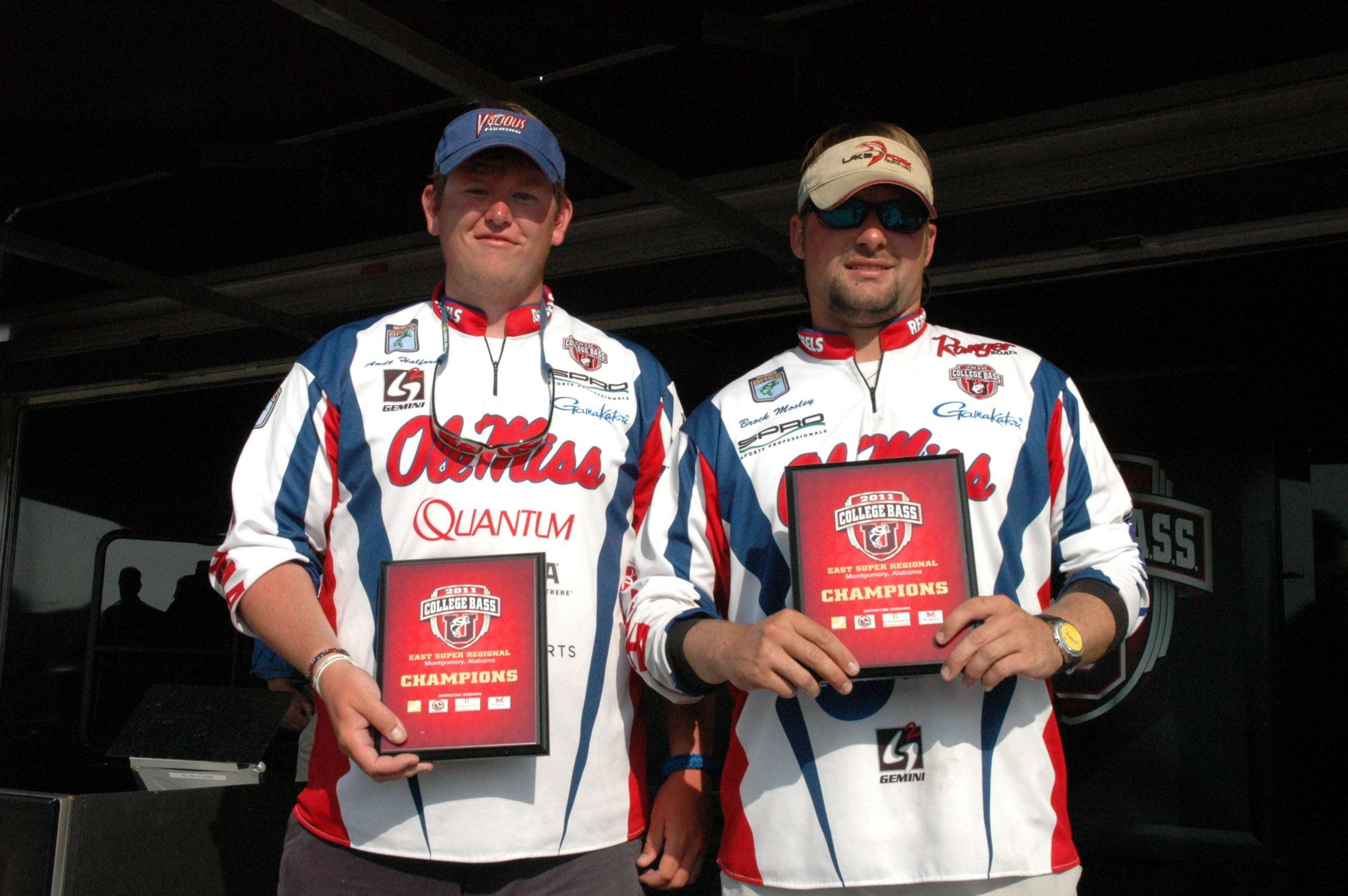
MONTGOMERY, Ala. — Andy Halford and Brock Mosley had never fished on the Alabama River before seeing it for the first time at the College B.A.S.S. East Super Regional. Even so, the top anglers from the Ole Miss Fishing Team led the two-day competition both days to win with a catch of 28 pounds, 5 ounces.
What made the win impressive were the conditions they faced on the river system. There were no cold fronts, no flooded riverbanks, or any other weather-related issues that typically create challenging angling situations.
Instead, it was the very nature of the fickle fishing associated with summertime river bass that sweetened victory. That is because the moving water of a river factors both pluses and minuses into the bass fishing equation. Divide the flow factor by the downtime when the current is slack and you’ve got the toughest habitat category to master in the sport.
“I called this river a ‘hit-or-miss’ kind of place,” said Halford, 23, of Columbus Miss. “We knew we’d have to play the current both ways to make it work for us.”
If Halford sounds like he knows what he’s talking about, he does. He and teammate Brock Mosley call the Tennessee-Tombigbee Waterway home turf. They spend their summers fishing the river system and are savvy when it comes to the tricky fishing that turns on and off like a light switch.
“We both fish all summer on the river, it’s all we’ve got around home that’s nearby,” added Mosley, 22, of Meridian, Miss. “We deal with it all, from muddy water to falling and rising levels, everything that makes bass fishing on rivers tough.”
“That’s why we were prepared for this tournament,” he added. “We were confident coming here that we’d find something that we could make into a pattern.”
The team locked in their pattern on Thursday after two days of practice and miles of river running behind them.
Mosley said the limitation of time prevented them from searching for a coveted sweet spot on the main river channel. Out there is the place to be when current flows to position bass tight to an identifiable bottom object like a sunken logjam or rock pile. You can quite literally load the boat on one stump, as the bass use the structure for an ambush point as baitfish gets swept downstream.
“We went shallow because the fish were in post spawn, so we knew there would be a shallow bite,” Halford said. “It would be more dependable than having to waste time chasing the current and running the river.”
The anglers built so much confidence in fishing a single backwater lake that running and gunning up wasn’t necessary. By 9 a.m. on Day One they’d boated a 12-pound limit, leaving the area for the next day. By the same time that next day they’d boated a 16-pound limit, anchored by a pair of 5-pounders caught by Mosley.
Both anglers played their strengths for a powerful one-two punch in the contest. Mosley, a self-proclaimed power fisherman, covered territory with a topwater plug and crankbait. Halford named himself the “clean-up guy” for his favored finesse style of angling. What Mosley missed, Halford meticulously flipped and pitched a shaky-head rig along shoreline cover.
“All we’re thinking about now is that national championship,” said Mosley. That’s a given, considering the College B.A.S.S. National Championship will be held on the Arkansas River in Little Rock.
And now that school is in summer recess, you can bet Halford and Mosley will be honing their river fishing skills on the Tennessee-‘Tombigbee, a choice practice field for winning a championship.

